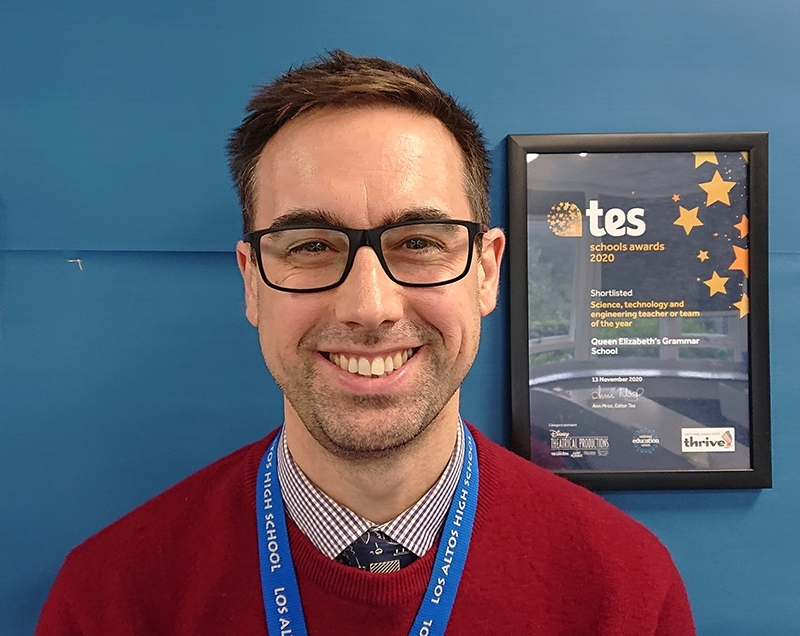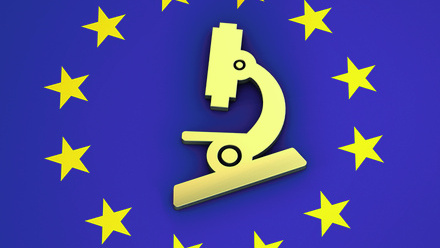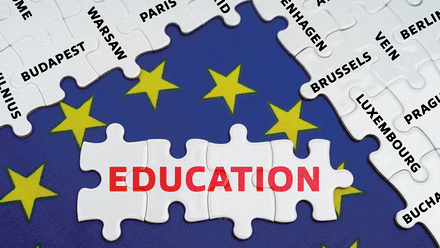Teaching during a pandemic
Dr James Perkins, Head of Science at Queen Elizabeth’s Grammar School (QEGS), in Kent, talks about the changes due to COVID-19.

How have you found teaching science in schools during the pandemic?
I'm just so glad to be back working with the students. It was a very strange time during lockdown and whatever they might say, they are glad to be in school! It is difficult – we've had to drastically alter how we run practical work (although our processes at QEGS have allowed us to carry on with practical work and many of our extracurricular STEM activities).
We are battling the divergence of those who coped well and those that fell behind a little, but with extra funding in place and with a huge dollop of the usual enthusiasm and dedication from teachers, I'm confident that the support is there for all students.
It's a shame not to be able to run the things that make the broader school experience, for example, the many trips as well as visiting speakers, competitions and social events. Technology has helped a great deal. I can't imagine being able to deliver education as effectively even 10 years ago.
What have been the challenges? And what opportunities or learnings has the experience offered?
Certainly developing our online offering – recorded and live lessons. Innovative use of technology in the classroom – especially since we are stuck in our two-metre box at the front! Online training, CPD and meetings without the travel is welcome and I'm sure the planet appreciates the reduced travel, if not the growth in screen time. The biggest issue my colleagues mention is that direct interaction, the little chats and circulating around the students – it's something that we always mention to trainees teachers as being so vital, yet social distance rules take that away completely.
How has COVID-19 captured the importance of STEM for pupils and given them new role models?
That's such a good question...they are certainly aware of the importance of science, although I think they have always realised that. Anything that provides context for the ideas and concepts being taught is incredibly important and the pandemic has shown just how varied a science career can be. The race for a vaccine may provide the next STEM heroes!
What’s next for outreach work?
I think the remote operation experience, coupled with everyone getting used to online meetings, means that we can connect in a much more meaningful way with academia and industry. To be invited into labs virtually doesn't need to be the poor relation to a live visit, in fact, it might allow groups to get involved where they might not otherwise be able to travel. This could open up truly global outreach, indeed, I've already operated microscopes from London to San Francisco via my lab at school! Any opportunity [is good] for students to meet people using their STEM skills in whatever area of work.
How can others in the materials, minerals and mining communities support outreach work?
It's always difficult as a teacher, we get so many offers of resources, events, outreach etc. The IOM3 community are great at offering their time and expertise for schools. Essentially keep doing it! Even if teachers don't respond or don't have time, keep offering – an online talk about your work or visit to give a talk at school is a really terrific experience for students. It doesn't have to be a huge ‘whizz bang’ project (great if it is), just being part of a school's wider network to help out where you can is great.
I run Crest Awards at school, and we are always keen to get in touch with mentors, and I know the British Science Association are always looking for assessors for the Crest Awards.







